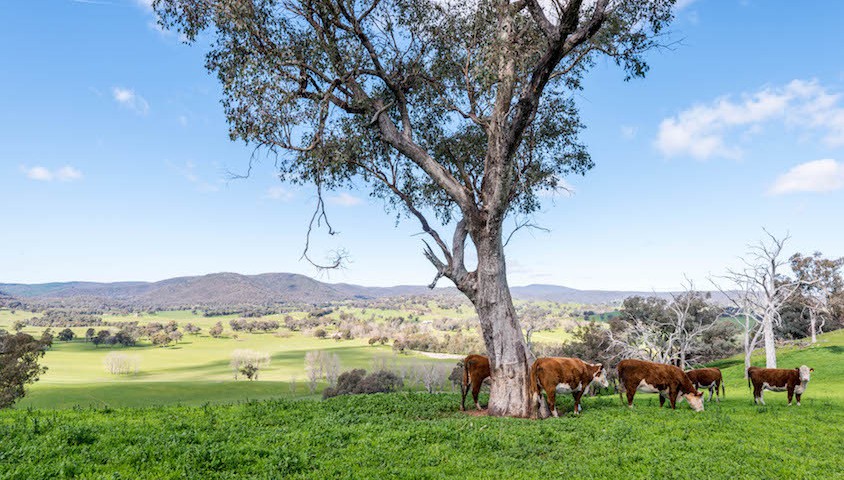“Ultimately, the main point is that environmental sustainability is good business in the agriculture industry,” said Clare Cannon, speaking from her Woomargama property in New South Wales.
Cannon is the lynchpin behind the Nature Conservation Trust‘s (NCT) latest media push, having partnered with her to protect one third of her property – amounting to some 600 hectares of open woodland.
As such, it comes as another in a string of victories for the NCT, which announced making its goal of protecting 50,000 hectares of high-value conservation land on private properties in NSW late last year. As an organisation it focuses on the creation of these covenants, as well as purchasing land in order to place covenants on them, as the major focus of its conservation work.
“The area of Woomargama Station that has been placed under covenant is endangered box woodland,” Cannon explained. “I believe there’s around 3.5 percent of this type of habitat remaining in southern Australia, so it’s important to protect as much of it as possible.”
Cannon’s property abuts Woomargama National Park, which Cannon described as being mostly forested habitat, as opposed to the more open woodland present on her property. Asked whether this covenant is expected to reduce the property’s earning potential, Cannon said that the opposite should be true.
“Part of the management plan provided by the NCT actually requires us to continue grazing activity in the area for six months – the cooler months of the year,” she said. “This also gives us the opportunity to add the NCT logo to the wool we produce, and we’ve found the additional benefits of this sustainability angle has resonated strongly in our European markets.”
Cannon’s family have been engaging in sustainable agricultural practices for generations and she also spent time working for Earthwatch before returning to maintain the family properties. Cannon has estimated her mother planted as many as 100,000 trees throughout her 25 years running the property, while her father focused on soil conservation.
“Evidence is showing that when conservation is seen as an integral part of a farm business rather than as something separate, it is recognising that this natural capital base is the very foundation of the agricultural business. The health of the land is intricately linked to the health of the ecosystems. Landholders who choose to look to integrate their farm practices with the ecological aspects that are there, will ultimately reap the benefits of a much more robust landscape,” said Gary Wells, CEO of NCT.
While the NCT is beginning to turn their focus on convincing more agricultural landowners to consider working with them, Cannon’s message is that these initiatives will provide increasing returns for those who engage in them, and shouldn’t be seen as a cost to bear at any stage.
“My husband had some concerns about the covenant devaluing our property, but we did an evaluation that demonstrated the land we were protecting, while being one third of this property, is still considered ‘marginal property’ by those in the farming business,” she explained. “Continuing to work it in the same way wouldn’t add any value for us over time, but now the land is protected and that type of habitat is growing rarer, it may begin increasing in value over the next 500 to 100 years.”




